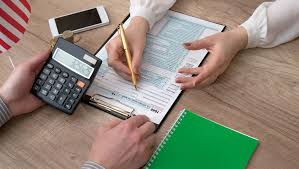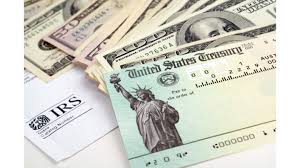Can A Tax Preparer Save Me Money?
As the old adage goes, there are two things that you cannot escape in life – death and taxes. Filing your tax returns is never easy since it means going through a mass of cancelled checks, bills, receipts, and other financial documents. This could overwhelm you and you should, therefore, consider hiring a tax preparer to do the job. You actually save money when you hire a tax preparer. So, are you asking yourself, “how can a Tax preparer save me money?” There are several ways through which this is possible.
You will save money because the tax preparer will ensure there is deduction maximization. If you use a computer software program, there is a risk that you may not find all possible deductions that are relevant to your situation. A tax preparer, on the other hand, asks targeted questions and this ensure that deductions that might have been missed are made.
A tax preparer will have the relevant training and experience to know the tax credits that you are eligible for. If you do not make a claim for a tax credit, it is not the responsibility of the government to tell you that you are entitled to them. You need not worry about tax preparer fees because these can be deducted on the following year.
Hiring a tax preparer saves you money because you will get future help if you find yourself in a sticky situation tax resolution services are necessary. If you have problems with tax penalties or back taxes, a tax preparer who understands your taxes will help you deal with the Internal Revenue Service (IRS). The case will take a much shorter period with the tax preparer who handled your case as opposed to a tax attorney or an accountant who is seeing your tax filing for the first time.
If you are wondering, “can a tax preparer save me money?” another way through which this is possible is that you can get a preparer who does tax preparations online. More and more people are turning to online tax preparer because of the convenience and anonymity this offers. Online rates are lower because of the intense competition.
The tax law changes with every budget reading and you need a tax preparer because he/she will be up to date with the latest changes. Hiring a pro ensures that you take full advantage of any new law and you do not get into the bad books of the IRS. As the old adage goes, ignorance is no defense.
A professional will have the time to double check for mistakes. Were you to do the tax preparation yourself, there is a risk that you might miss some things. Tax preparations errors are more common than most people thing. These errors could be costly. A good tax preparer will use a software program for the tax preparation and will then check this manually.

Saving money by saving the tax preparer’s time
I found a tax preparer using these tax tips. After checking the accountant’s credentials and a free consultation phone call, I set up an appointment.
But my work isn’t done. I could show up with a stack of papers and a shoebox full of receipts, if I want to pay for the time he’ll need to sort through the mess. My tax preparer knows this all too well, which is why he provided a guide to speed up the preparation process — ways to save him time that will save me money. I’ve expanded on that list using other sources, and came up with the following 8 documents, numbers, and data to organize, locate, or calculate before you meet with your tax preparer:
- A copy of last year’s tax return, including the state return, if applicable.
- Original W-2s, 1099s, 1098s, and K-1s (make copies for your records).
- Birth dates for you, your spouse, and your dependents.
- Do you want your refund deposited directly into a bank account? Have your bank account routing number and account number.
- Do you pay for childcare? Provide the Social Security or Employer Identification Number for all child care providers for Form 2441.
- Did you sell shares of stock or a mutual fund? Have the following: Date acquired, number of shares acquired, purchase price, and sales commissions and fees, adjusted by reinvented dividends and stock splits.
- Did you invest? Bring a copy of your broker’s year-end tax report that shows interest, dividend earnings, and proceeds from sales of securities. Also bring copies of any booklets they mailed you, which can include information on income from government obligations that can be used to prepare state tax returns.
- Did you earn interest at a bank or credit union? List each bank and the amount earned.

Consider before hiring a tax professional:
Advantages
Filing Your Own Taxes Can Be Incredibly Time-Consuming
In 2007, the IRS estimated that the average person spent 24.2 hours completing their tax returns, a number that I had easily surpassed when attempting to handle my own taxes. For those who had to file a Schedule C for business or a Schedule E for rental properties, this number quickly jumped to 52.2 hours.
To put this number into perspective, if you assume that the average person’s time is worth $25 an hour, that is a cost of up to $1,305 dollars. Money and time that could be saved, invested, or in my case, put towards the down payment on a new car. A tax professional will be able to work quickly and efficiently and save you not only time but a headache that is sure to follow.
Tax Preparation Fees Can Be Deductible
Assuming you itemize, any fees you incur while preparing for your taxes can be deducted on Form 1040 as long as the sum of your miscellaneous deductions you are claiming here is greater than 2% of your adjusted gross income.
Difficulty
Filing a tax return cannot only be complicated and confusing but is also constantly changing. The Federal tax code is adjusted each year making it nearly impossible for the average taxpayer to be fully aware of all changes that may apply to them. If you must claim any of the following, as I had to, it is especially advised that you speak with a tax professional as these scenarios will instantly complicate your tax return:
- You own, sold or started a business
- Have many investment losses or gains
- Capital asset transactions
- Real estate transactions
- Change in marital status
- Your income and residence are not in the same state or country
- Trust Fund Transactions
- Completing a Schedule for Self-Employment Income

Deciding Point: The Complexity of Your Finances
As a general rule, the more complicated your tax situation is, the more advantageous it might be for you to bring in a tax professional. What constitutes complexity? If you have any of the following situations:
- You own a business. Whether your business is a full-time endeavor or simply a sideline, there are some special rules that you may want to discuss with a tax pro. For example, if your business purchased equipment, there are several ways to write off the cost; the best way to do this depends on your current tax situation as well as your prospects for the future. You can, of course, handle many of these situations with appropriate tax software (TurboTax Home & Business, for example, will help you prepare a Schedule C for a sole proprietorship), but you won’t get personal advice.
- You had a major life event this year. For example, if you sold a business, went through a divorce, bought or sold a home, or had any other major life change, a tax preparer can alert you to the relevant rules you’ll have to follow and the breaks to which you may be entitled
- You want to itemize. Again, software lets you feed this information into the mix, but a tax preparer can provide strategic advice about deductions you’re entitled to, the substantiation you need, and other matters that could help you reduce your tax bill while avoiding problems with the IRS.
How do you find the best tax preparer for your needs? Consider these points as you search.
- Credentials and Expertise – You want someone who is registered with the IRS and has a Preparer Tax Identification Number (PTIN). Anyone who fills out your returns for a fee is legally required to have one.CPAs, EAs, and tax attorneys will undergo different levels of tax training, but that does not necessarily mean they have filed any returns. Even if they have, their expertise may be in different areas, and they may be more familiar with deductions in a specific area (such as the self-employed or very active investors). You want a preparer with expertise in returns for your field.Ask about their credentials and professional memberships such as the National Association of Tax Professionals and the National Association of Enrolled Agents. If you don’t feel comfortable with their answers, keep searching.Finally, make sure your preparer is familiar with state tax issues as well as federal ones. If you live and work in different states, that is a non-trivial issue.
- Costs – Fees will vary by area of the country, complexity of the tax return, expertise of the preparer, and your level of organization. The stereotypical shoebox full of crumpled receipts will earn you a higher bill – as it should.Generally, greater expertise commands a higher fee, but this is not always true. Chain preparers can be unusually expensive, and CPAs/EAs can be a bargain. Comparison-shopping often pays off.Avoid anyone who tells you the fee will be a percentage of the return or promises you a higher return without even looking at your records.
- Reviews – Check online reviews, the Better Business Bureau, and professional organizations for feedback and complaints. If anyone you trust has had personal experience with the preparer, ask him or her for an honest assessment.
- Experience – Choose a preparer with both longevity and experience in your field. You want to be confident they will be available in case there are issues with the return.